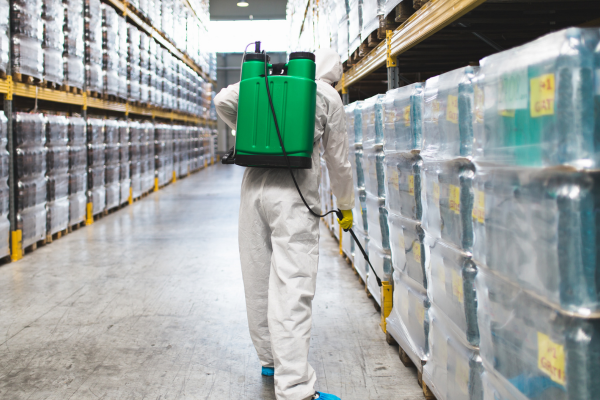Efficiency, Safety, and Precision: The Role of Industrial Control in Modern Manufacturing
In today’s world of modern manufacturing, the integration of industrial control systems plays an important role in enhancing efficiency, ensuring safety, and achieving precision. These systems, encompassing a variety of technologies and methodologies, are revolutionizing the way goods are produced across industries. From automotive assembly lines to food processing plants, industrial control systems are at the heart of the manufacturing process, driving productivity and quality.
What is an Industrial Control System?
An industrial control system (ICS) is a type of system used to control and monitor industrial processes, machinery, and infrastructure in sectors such as manufacturing, energy, water treatment, and transportation. It typically consists of a combination of hardware and software components that work together to automate and optimize industrial operations.
Key components of an industrial control system include:
Sensors and Actuators: Sensors gather data from the physical environment, while actuators are used to control physical processes based on the data received.
Programmable Logic Controllers (PLCs): PLCs are specialized computers that are used to control machinery and processes. They receive input from sensors, process the data, and send commands to actuators.
Supervisory Control and Data Acquisition (SCADA) Systems: SCADA systems are used to monitor and control industrial processes at a supervisory level. They provide real-time data visualization, remote access, and control capabilities.
Distributed Control Systems (DCS): DCSs are used to control complex processes or systems with multiple control loops. They consist of a network of controllers distributed throughout a system.
Human Machine Interface (HMI): HMIs provide a graphical interface for operators to interact with the industrial control system. They display data, trends, alarms, and allow operators to input commands.
Communication Protocols: Industrial control systems use various communication protocols to facilitate data exchange between different components, such as Modbus, Profibus, and Ethernet/IP.
Industrial Control and Factory Automation Market Research:
To determine the market size of the Industrial Control and Factory Automation market, conduct thorough research using industry reports, market studies, and reliable sources. Here are the steps we can take to gather this information:
Desk Research: We can start by examining industry reports and market studies from reputable sources such as market research firms (e.g., Grand View Research, Market Research Future, IDC, etc.) and industry associations to understand the current market size and growth trends in the Industrial Control and Factory Automation sector.
Online Databases and Platforms: We can utilize online databases like Statista, IBISWorld, and GlobalData to access market data, industry trends, and forecasts related to Industrial Control and Factory Automation.
Competitor Analysis: Analyzing the market positioning, products, and strategies of key players in the industry can also provide insights into the market size and competitive landscape.
Primary Data Collection: Conducting surveys, interviews, or focus groups with industry experts, customers, and stakeholders can help gather specific data and insights on market size, customer preferences, and growth opportunities.
Data Analysis: Analyze the collected data using statistical techniques and data visualization tools to identify patterns, trends, and correlations that can help estimate the market size of the Industrial Control and Factory Automation sector.
By following these steps and combining information from various sources, we can estimate the market size of the Industrial Control and Factory Automation market and provide valuable insights for strategic decision-making.
Conclusion:
In conclusion, the integration of industrial control systems has become indispensable in modern manufacturing, revolutionizing the way goods are produced across industries. By prioritizing efficiency, safety, and precision, these systems optimize operations, mitigate risks, and ensure the highest quality standards. As technology continues to evolve, industrial control will remain at the forefront of innovation, driving further improvements and shaping the future of manufacturing.
Share this post if you find it useful -
-
Facebook
-
Twitter
-
Linkedin
83422+ Reports Delivered
Accurate market data is crucial to a successful business strategy. With an 85% + accuracy in all reports, makes us one of the best and most accurate firms in the world.
Need Customized ReportCall NowRecent Post
-
Predictive Maintenance Market Growth: Key Trends Shaping the Future
-
Exploring the Growth of the Quantum Cryptography Market: Trends and Predictions
-
Blockchain Identity Management: Market Forecasts and Industry Growth
-
Generative AI Market Analysis: Key Players and Innovations
-
The Future of Work: How the AI Market is Transforming Industries

